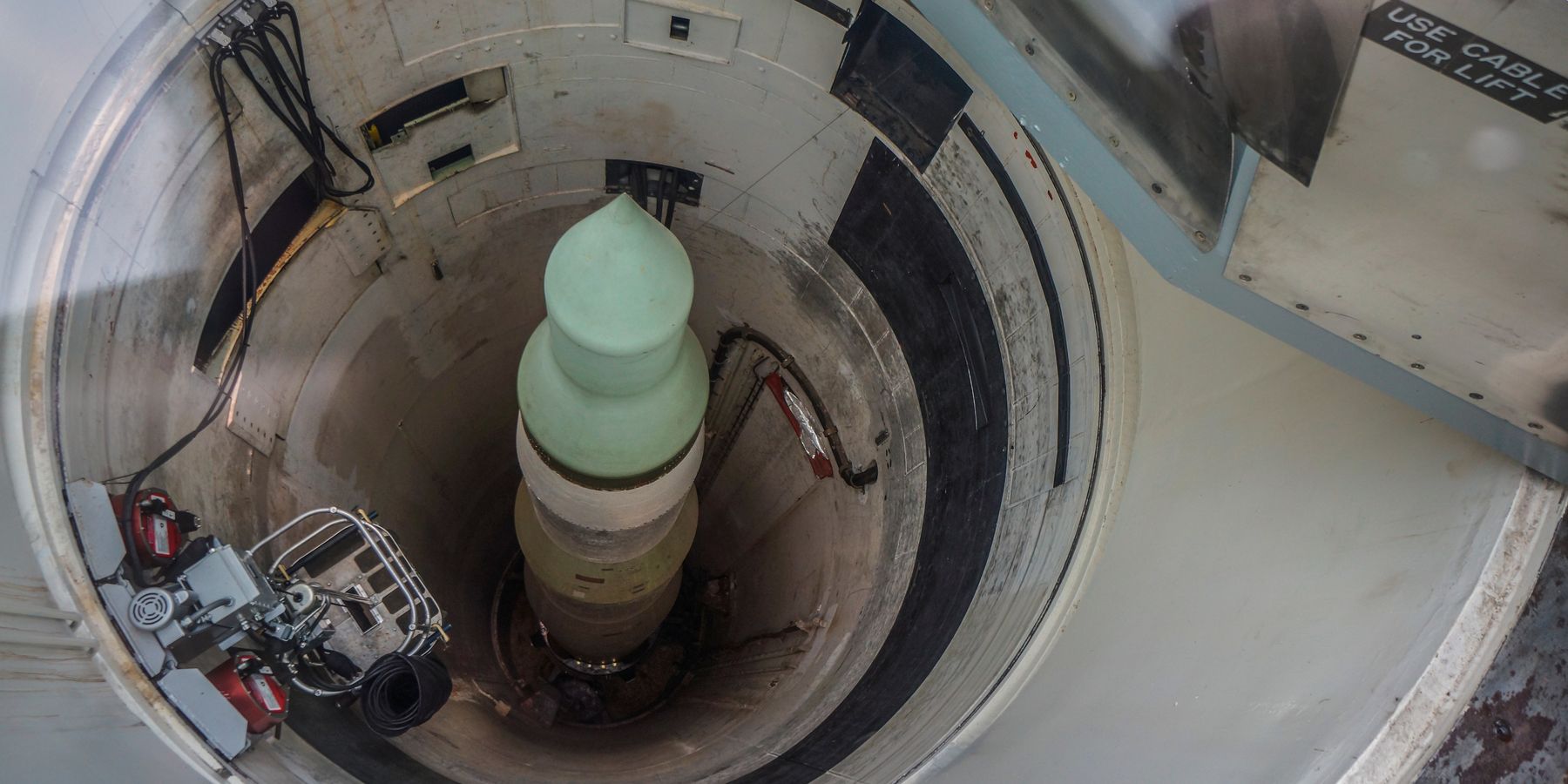The Pentagon is in the midst of a three-decades long plan to build a new generation of nuclear weapons, and it is not going well — so badly that the Air Force announced this week that it will pause large parts of the development of its new intercontinental ballistic missile, known officially as the Sentinel.
The pause will impact design and launch facilities in California and Utah and is projected to throw the project 18 to 24 months off schedule.
The project has been troubled from the start, when Northrop Grumman received a sole source contract to develop the system after Boeing withdrew from the competition, charging that the bidding process was rigged against it. And last year the missile underwent a Pentagon review when it was revealed that it was projected to cost 81% more than original estimates, boosting the price of procurement alone to $141 billion, with hundreds of billions of dollars more to operate and maintain the Sentinel over its useful lifetime.
Despite the runaway costs, the Pentagon decided to double down on developing the Sentinel, claiming that it was essential to deter other nations from launching a nuclear attack on the United States. In fact, at a time when “efficiency” is the watch word in Washington and other federal agencies are being dismantled as we speak, canceling the new ICBM is an obvious place to find savings, as suggested in a recent research brief by myself and my colleagues Gabe Murphy of Taxpayers for Common Sense and Julia Gledhill at the Stimson Center.
As enormous as the cost of the Sentinel is slated to be, that is not the only reason to put the system on the budgetary chopping block. Independent experts like former Secretary of Defense William Perry have argued, persuasively, that the new ICBM will make us less safe by increasing the chance of an accidental nuclear confrontation sparked by a false alarm of an enemy attack. The risk is grounded in the fact that the president would have just a matter of minutes to decide whether to launch U.S. ICBMs in a crisis.
Despite the costs and risks posed by the Sentinel program, it remains virtually sacrosanct in the view of the Pentagon and many members of Congress, on the theory that the nuclear triad — the ability to launch nuclear weapons from the air, land, and sea — is essential to U.S. security. But the triad was born out of bureaucratic politics, dating back to the 1950s fight between the Navy and the Air Force to get their piece of the nuclear budget pie. And it persists in major part due to pork barrel politics — the jobs and profits generated by spending inordinate sums developing and deploying new nuclear bombers, ground-based missiles, and ballistic missile submarines.
The ICBM lobby includes Northrop Grumman and its major subcontractors and members of the Senate ICBM Coalition, composed of members from states that host ICBM bases or major development and maintenance work on the Sentinel. The lobby has been remarkably successful in fending off any efforts to reduce the size of the ICBM force or even to study alternatives to a new missile.
Former Representative John Tierney of the Center for Arms Control and Nonproliferation has neatly summed up the problem:
“Not only are intercontinental ballistic missiles redundant, but they are prone to a high risk of accidental use. … They do not make us any safer. Their only value is to the defense contractors who line their fat pockets with large cost overruns at the expense of our taxpayers. It has got to stop.”
As President Trump and Elon Musk pledge to scour the Pentagon budget for potential savings, ending the Sentinel program and eliminating ICBMs from the arsenal should be at the top of the list, and a measure of whether the effort to streamline the Pentagon and end dysfunctional programs is serious.
- Meet the army of lobbyists behind $2 trillion nuclear weapons boost ›
- Firing nuclear missiles from the pork barrel ›
- Getting out (in front) of DOGE | Responsible Statecraft ›
- Think tanks are helping DOD dodge the DOGE | Responsible Statecraft ›
- Can DOGE Help Break the BRAC Logjam? | Responsible Statecraft ›
- The expanding gravy train for the new land-based Sentinel nuke | Responsible Statecraft ›
- Air sickness symptoms: Old nukes and the F-35 | Responsible Statecraft ›
- Put this nuclear missile on the back of a truck — but we still don't need it | Responsible Statecraft ›
















